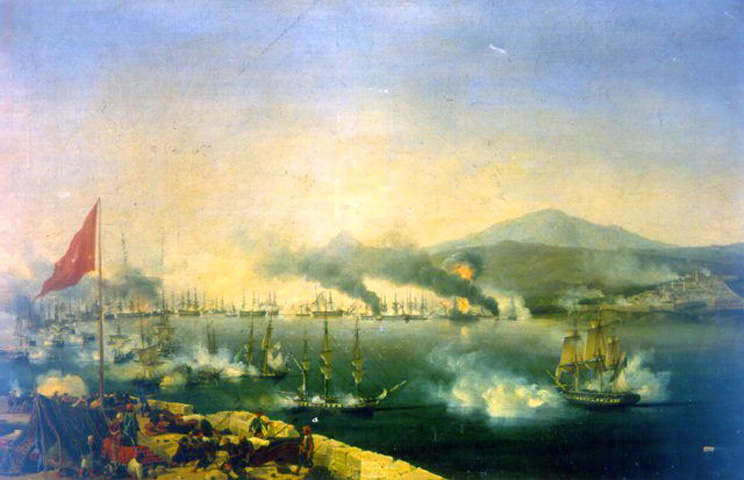Have we seen the end of the crisis in Greece and the euro with the third bailout? Is the deal good for the EU and Greece? It has been months—if not years—that the “Greece issue” has been in the news, but understanding it requires more than economic analysis. There are other determining factors, such as geopolitics, history and knowledge of the sociopolitical/institutional environment of the Hellenic country. Hence it is vital to understand the context in which we operate.
1. A complex tale: Greece and the EU
Greece’s inclusion in the European Union (1981) and the eurozone (2001) is essentially a product of geopolitics . The European Commission expressed unfavorable opinions in both cases. But Greece manipulated its macroeconomic figures to enable its incorporation into the euro. If it weren’t for geopolitical reasons—Greece occupies a very important strategic position on the southern flank of the former Soviet Union—Greece would probably still have only an Association Agreement with the EU (1962). Both China and the United States also have an interest in maintaining geopolitical stability in Greece.2. Forget about “Classical Greece”
The Greece of today is far removed from Classical Greece, the birthplace of democracy, philosophy and Europe. In fact, it was part of the old Ottoman Empire for four centuries (until the war that took place between 1821 and 1832); that makes it an Eastern and Balkan country.
A 19th century English ambassador wrote this in his diary while traveling through Greece en route from London to Istanbul: “I’ve passed through a few territories of the Ottoman Empire in which I have not seen anyone working.” That was a harsh statement, yet rather descriptive.

Modern-day Greece is a product of the Cold War. Without the intervention of the United States, the outcome of the Greek Civil War of 1946-49 would have led to the creation of another Communist country in the Balkans…
However, despite remaining on the other side of the wall, the Greeks belong to the Orthodox world and many admire Putin’s authoritarian Russia, as Tsipras himself demonstrated with his repeated allusions to Moscow.
3. Does the third rescue make sense (€86 billion) or it would have been better to allow a Grexit?
The Greek economy accounts for less than two percent of the EU economy and is not a modern, competitive, complex, export economy. It has a disproportionate government characterized by cronyism and a bloated, inefficient bureaucracy. One example of the “popular culture” is the “custom” of its citizens to not pay taxes or to look for foreign scapegoats for their shortcomings.
For these reasons, from a purely economic standpoint, the third bailout of Greece (€86 billion, which along with the two previous bailouts brings the total to over €250 billion) makes little sense, however it is advisable for political geopolitical reasons.
In this respect, Germany’s Finance Minister, Wolfgang Schäuble, when he advocated a temporary exit from the euro, and Chancellor Merkel, when ultimately deciding on the contrary, were both right: for their own reasons.
The moments of tension before Tsipras gave in were reflected in the comment made by the President of the European Council, Poland’s Donald Tusk, who gave an ultimatum to Merkel and Tsipras at seven in the morning: “You can’t leave here until you reach an agreement.” The negotiation went far beyond just numbers: key geopolitical reasons that Merkel is well aware of. With a third rescue, Merkel avoided a historic breakup of the eurozone.
The first two bailouts (2010 and 2012) were predominantly about economic considerations. It was advisable to avoid the contagion effect. In 2015, other factors carried more weight. Still, much more remains to be done, but the eurozone has been repaired and continues in that direction. Once again, politics, or geopolitics if you will, have come to the aid of Greece and have pulled it back from the brink—at least for the time being.
4. What now?
The third bailout of Greece has not yet materialized; its success is not guaranteed, and nor is it an irreversible step. Even in a favorable scenario, the road ahead is foreseeably a long and arduous one. But it is the right move to defend the interests of the EU and enable Greece to deal with its pending reforms, which will not be an enviable experience. The country must mature politically and economically in a short time. It has to greatly modernize its political and administrative institutions and its economy. To do so, Greece would be best served to carry out those reforms from within the eurozone. On the outside, the chances of salvation were and are much lower.
Apart from the sacrifices, uncertainties and loss of confidence resulting from its exit, a return to the drachma and the success of a devaluation would require two essential conditions: a serious and independent economic policy and an export potential. In both cases, Greece’s outlook is dubious.
5. Propelled by crisis: Are the EU and the euro coming out stronger?
The exit of Greece from the eurozone would have had important political consequences for the euro itself and the EU in general. With regard to the former, because the European experience suggests that reforms tend to be fueled by crises.
The original weaknesses of the euro are now well known and identified and are to a certain degree starting to be resolved: banking union, stability mechanism, macroeconomic supervision, etc. Much remains to be done and there are proposals on the table to complete economic union (the Five Presidents’ Report). In this respect, Greece’s continued status as a weak link in the system is further incentive to provide depth and urgency to the reforms.
The Grexit would had shown the reversibility of the euro and weakened the imperative for change. That is why, in the future, Greece must be able to take measures that boost growth. Other countries in the eurozone have managed to do that.


Nathan Shepard is a bible scholar with a background in theology and archeology. He has spent more than 17 years studying the ancient scriptures and how the words of the prophets became historical fact over time. Now, his spine chilling theory links present times events to bible prophecies in a clear and concise way… and foretells a very sinister future for the US. From that moment on, he decided that he must become a survival expert, train and prepare for the worst disaster in human history
https://www.youtube.com/watch?v=CQvV5uLSmzk